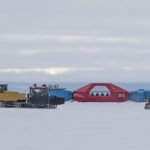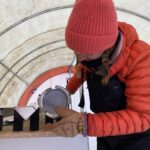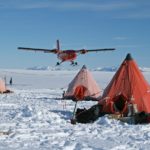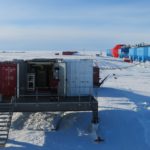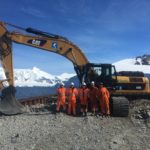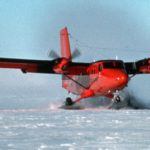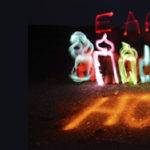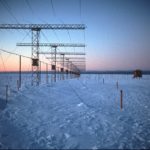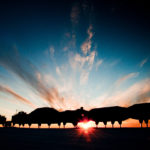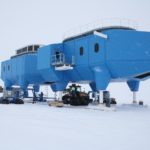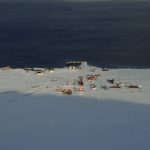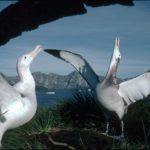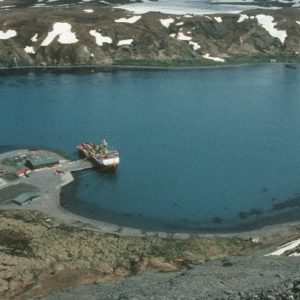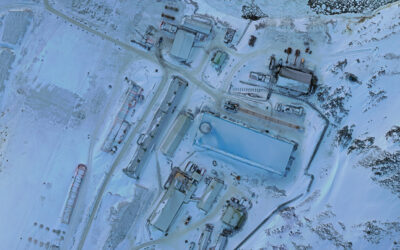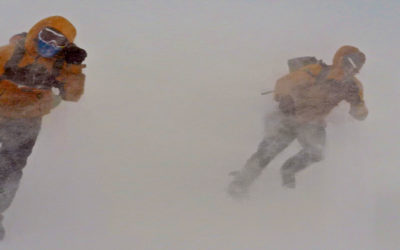Research Stations & Field Planning team
Our ambition
Is to support the UK’s polar research effort through effective and efficient operation and management of research stations and deep-field locations in the Antarctic, the subantarctic and in the Arctic. We execute our operational management and planning from our Cambridge offices and deliver our research station leadership and support on location in Antarctica and the Arctic.
Team priorities
- To work with the scientific research teams to ensure that access to polar research stations meets project ambitions
- To optimise the use of polar research infrastructure
- To plan and manage logistics support to ensure that research station supplies and equipment are available to users
- To work closely with all teams across the organisation to ensure efficient co-ordination of resources
Technology, innovation and training
- We utilise planning tools and technologies to deliver the BAS mission
- We train researchers and support staff in polar fieldwork techniques
Influencing and leading international programmes
- We work with Principal Investigators and science leaders who are involved in multi-national research campaigns in the polar regions
- We influence international polar operations through our membership of the Council of Managers of National Antarctic Programmes
Stakeholder engagement
- We work closely with in-house and external science teams to scope out the most effective fulfillment of their requirements and offer our expertise and knowledge to create and deliver realistic support services.
Antarctic drilling missions seek to understand climate and ice dynamics
12 December, 2024
Over 30 researchers from international institutes are working on ice core drilling campaigns in Antarctica to probe the ice sheet’s behaviour, carbon cycling in the Southern Ocean, and the Earth’s …
Halley Research Station closes for 2019 Antarctic winter
27 February, 2019
British Antarctic Survey (BAS) Halley VI Research Station has closed for the 2019 Antarctic winter after a successful summer field season. It will re-open again in November this year. The …
Digging begins in construction of new Antarctic wharf
14 January, 2019
First digging has begun to deconstruct the old wharf at Rothera Research Station as part of modernisation work to transform the way British Antarctic Survey delivers frontier science
PRESS RELEASE: New season – ambitious science
23 November, 2015
New season tackles ambitious science and logistical challenges The British Antarctic Survey (BAS) 2015/16 field season is underway with dozens of scientists and support staff – together with planes and tonnes …
NEWS STORY: Research stations mark Earth Hour
26 March, 2015
WWF’s Earth Hour is a global annual event where hundreds of millions of people switch off their lights for one hour to show they care about the planet.
NEWS STORY: Midwinter’s Day in Antarctica
20 June, 2014
Midwinter’s Day celebrations take place at Antarctic Research Stations Staff at the British Antarctic Survey are celebrating Midwinter’s Day in Antarctica. In a tradition which began in the days of …
BLOG: Bird Island Station Leader
28 May, 2014
We caught up with Bird Island Research Station Leader Adam Bradley who was living and working on the island when the BBC crew came to film Deadly Pole to Pole. …
PRESS RELEASE: New research station operational
5 February, 2013
New state-of-the-art Antarctic research station becomes fully operational this month Britain’s latest Antarctic Research Station becomes fully operational this month, signalling a new dawn for 21st Century polar research. Opening …
ARCTIC BLOG: Students learn skills required for polar science
26 August, 2015 by Thomas Clay
Hello! This is the first blog about the upcoming NERC Advanced Training Short Course run by the British Antarctic Survey (BAS) between 26th August and 8th September 2015. We are …
ANTARCTIC BLOG: Winter on Bird Island – a guide to passing the time!
21 August, 2015 by Robbie Scott
How do you go from a life where you are constantly around many other people, going from one place to another, to a life where you have only three …
Sustained, year-round oceanographic measurements from Rothera Research Station, Antarctica, 1997-2017
10 May, 2023 by Andrew Clarke, Ali Massey, Alice Clement, Aurelia Reichardt, Emma Stuart, Emma Bolton, Terri Souster, Helen Peat, Hugh Venables, Hollie London, Kate Hendry, Mairi Fenton, Marlon Clark, Michael Meredith, Petra Ten Hoopen, Ryan Mathews, Sabrina Heiser, Sarah Reed, Samuel Pountney, Terri Souster, Zoe Waring
Oceanographic changes adjacent to Antarctica have global climatic and ecological impacts. However, this is the most challenging place in the world to obtain marine data due to its remoteness and…Surveys reveal increasing and globally important populations of south polar skuas and Antarctic shags in Ryder Bay (Antarctic Peninsula)
1 February, 2019 by Ali Massey, Janet Silk, Kevin Hughes, Richard Phillips
Despite their importance in ecosystems, population sizes and trends are unknown for many seabirds, including in the Antarctic. Here we report on the first comprehensive survey of south polar skuas…Innovative transportable laboratories for Polar science
1 January, 2018 by Dave Wattam, Michael Pinnock
The Netherlands Organisation for Scientific Research and the British Antarctic Survey have built a transportable laboratory facility, named the Dirck Gerritsz Laboratory, to accommodate new scientific research on and from…Read more on Innovative transportable laboratories for Polar science
Animal temperature limits and ecological relevance: effects of size, activity and rates of change
1 January, 2009 by Ali Massey, Lloyd Peck, Melody Clark, Simon Morley
1. Climate change is affecting species distributions and will increasingly do so. However, current understanding of which individuals and species are most likely to survive and why is poor. Knowledge…Lack of acclimation in Ophionotus victoriae: brittle stars are not fish
1 January, 2009 by Ali Massey, Lloyd Peck, Michael Thorne, Melody Clark
Acclimation is possibly the most important criterion deciding an animal's ability to survive change. Species with poor abilities to acclimate to small environmental change are likely to be the most…Read more on Lack of acclimation in Ophionotus victoriae: brittle stars are not fish
Seasonal observations of stable isotope variations in a valley catchment, Signy Island, South Orkney Islands
1 January, 2002 by Rodney Strachan
The oxygen and hydrogen isotope composition of waters in a small valley at Signy Island, South Orkney Islands, were monitored over three summers (1999 to 2001). These stable isotopes track…